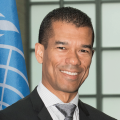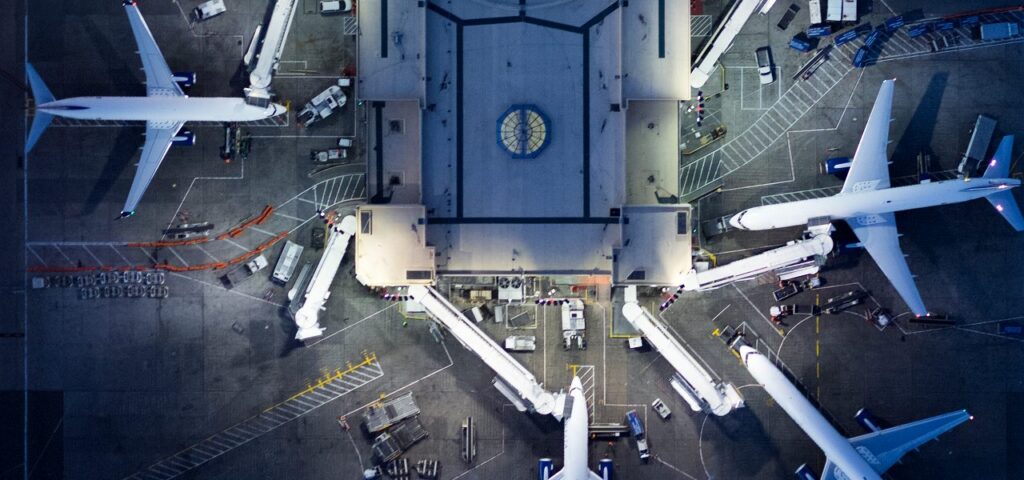Sylvain Lefoyer, Deputy Director, Aviation Security and Facilitation at the Air Transportation Bureau of International Civil Aviation Organizations (ICAO), discussed the new ICAO milestone, threats that emerged, and how Icao strengthened global flight security and facilitation through updated standards and collaboration with industrial stakeholders.


The International Civil Aviation Organization, ICAO, based in Montreal, Canada, is a special agent of the United Nations, founded in December 1944 in Chicago, who celebrated the 80th birthday last year.
2024 is also the 755th warning of the creation of Appendix 9 – Facilitation to the Chicago Convention, the recommended collection and practice standards, SARPS, Facilitation of Air Transportation, Border Management and Security, and 50 years of commemoration of Creation of Appendix 17 – Flight securityprevent and suppress the act of interference that violates the law on civil aviation.
This is celebrated through several events during the 2024 facilitation year, as well as security weeks, in December 2024 in Oman, where countries repeat their commitment to improve security, cyberspace security, critical infrastructure protection and more globally the resilience of air transportation, commitments that are manifested in the Muscat declaration.
This year, Icao will hold the 42nd Assembly, from September 22 to October 3, 2025, at its head office in Montreal. This will be an opportunity for all 193 member countries to determine the direction for the next trienium and choose a new council from 36 permanent representatives.
The discussion in the facilitation will be framed by the results of the facilitation conference held in Doha, Qatar from 14 to 17 April 2025 and discussions in security with security results held at Muscat, Oman from 9 to 12 December 2024.
What are the challenges?
Even if a lot of progress has been made over the past few decades, many challenges must be overcome to keep air transportation safe, safe, and semulil as possible. Sustainable passenger traffic growth and continuous threat to civil flight calls for sustainable efforts from ICAO, members of its members and all industries, including airport and airline operators.
Experts from states and industries, who gathered in the panel, supported ICAO in the development of SARP, were aimed at countries after the consultation process, which was then adapted by countries in their legislative framework and national regulations.
In the field of facilitation, Appendix 9 SARP related to border management and security is supported by a traveler identification program strategy, ICAO travel strategy, which provides benefits for passengers and authorities by defining safe and controlled travel documents and enables automating processing that accelerates border intersections at the airport and increase security levels at the same time.
Exchange of passenger data, biometric and immediately, Digital Travel Credential (DTC), will help question travel documents, reduce control time and facilitate passenger flow, to help overcome traffic growth.
In the field of security, experts from the state help ICAO identify threats to civil aviation and reduce risk through Appendix 17 SARP, guidance materials, training activities and capacity building.
A picture of a global threat shows a sharp increase over the past few years in geopolitical tension throughout the world and in the number of conflicts that have a direct impact on aviation security.
A picture of a global threat shows a sharp increase over the past few years in geopolitical tension throughout the world and in the amount of conflict that has a direct impact on flight security, with more and more regions submitted to GNSS radio frequency disorders, such as traffic jams and GPS spoofing, and utilizing it against the military or armed that are not manipulated by unprementing air systems (UAS).
Targeted cyberspace attacks on flight assets, airports and airline operators have also increased, mostly related to geopolitical conflicts or for criminal purposes (ransomwarks) that have the effect of interfering with operations but without direct impact on passenger safety.
At the local level, security events that monitor through open-source intelligence and reporting by countries over the past few years show a trend of disturbance caused by difficult passengers, the threat of fake bombs, threats of internal people and intrusion and airport protests.
Reporting by countries over the past few years has shown a trend of disturbance caused by an unregulated passenger, the threat of fake bombs, the threat of internal people and intrusion and airport protests.
Many challenges quoted above have an impact on the airport and their activities, and although the ICAO standard does not apply directly to airport operators, the airport is a place where most of the security steps specified in Appendix 17 are applied effectively. The standards are designed to be risk -based, so that effective security begins with local risk assessments, which require some knowledge about the picture of threats, and explain why security steps may be different from one country to another.
EVOLUTION OF WORKING FRAMEWORK SECURITY SETTINGS
There has been no big evolution in the Standard Appendix 17 New -New, and the next amendment that will come will clarify some of the provisions that exist in One Stop Security (OSS), which is a strong concept that makes it possible to alleviate the flow to connect passengers and avoid excessive security steps by recognizing, verifying, and monitoring the level of security applied bilaterally at the point of departure.
The new ICAO updated the global flight security plan, Gasep, which helped declare prioritizing their activities to increase the implementation of the standard appendix 17, with the support of many guidelines available for them.
The new gasep reiterates the aspirational goal of achieving and maintaining a strong global aviation security system supported by full and effective implementation of ICAO flight security standards in all member countries. The new feature is to monitor progress through a combination of voluntary self-reporting, and a universal security audit program of the Sustainable Monitoring Approach (Wipe-CMA), using a milestone in historical to assess global progress. The state and industry are encouraged to take advantage of this when setting national goals and developing road maps to achieve shared aspirational goals.
Improvement in technology will bring benefits to passengers. We see more cabin filtering equipment that can control the luggage of passengers without having to remove a laptop and hopefully can also filter out liquids, aerosols, and gels (lag). This evolution does not require changes in ICAO standards, but rather increase technology.
So, what should the airport do now?
As stated above, SARP ICAO is addressed to the state, not for airport operators, and needs to be adapted in national laws and regulations to obtain obligations to operators who must then comply. But above and beyond the compliance of regulations, in a very competitive sector, the airport can, and often do it, has a more service -oriented way of service and customer -oriented to overcome flight security and facilitation, to make it competitive assets.
Security and facilitation at the airport are part of the general processing of passenger flow and need to be designed and articulated correctly so as not to make obstacles or choking points, so that security with design is a necessity, such as developing a strong security culture.
In this case, many activities have begun since the ICAO year from the security culture, in 2021, to spread security cultures to all flight professionals, outside of security personnel, as well as people who work in the airport environment and finally all passengers. The airport is and is still at the forefront of this cultural change.
ICAO remains a place where the state, industry and all stakeholders work together to build consensus through which standards and the recommended practices are developed and adopted. The airport was represented by the International Airport Council (ACI World), their expertise was highly valued and their voices were heard!

 Sylvain Lefoyer Is the Deputy Director, Aviation Security and Facilitation at the International Civil Aviation Organization Air Transportation Bureau (ICAO), holds this role since 2017.
Sylvain Lefoyer Is the Deputy Director, Aviation Security and Facilitation at the International Civil Aviation Organization Air Transportation Bureau (ICAO), holds this role since 2017.
He led the team in charge of developing recommended policies, standards and practices (SARP), conducting audits and providing assistance and capacity building in the fields of aviation security, cyber security, border security and facilitation.
Sylvain is the Secretary of the Aviation Security Committee, the International Explosives Technical Commission and the Cyber Security Coordinating Committee.
Before Icao, Sylvain’s career included 25 years at the French Ministry of Transportation, which included transportation and security safety in maritime navigation, land transportation and air navigation.
He holds a master’s degree in electronics from Paris University and a master’s degree in public management from école des Ponts Paristech.



